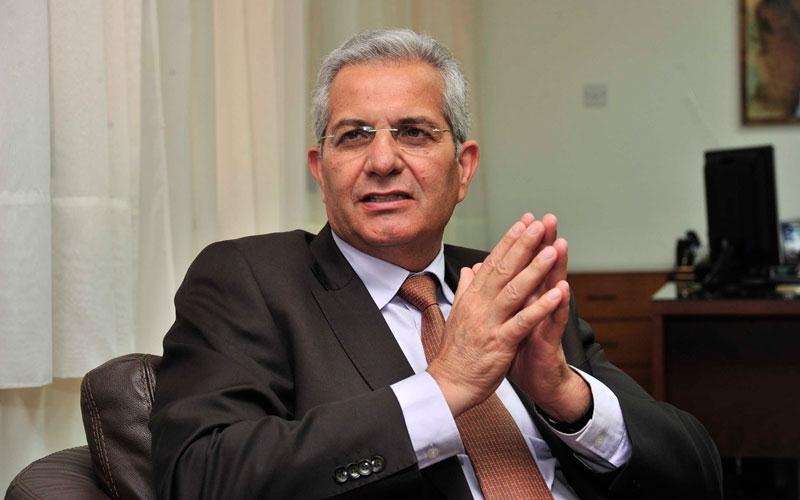
“The course of the negotiations on the Cyprus problem” by Andros Kyprianou, General Secretary of the C.C. of AKEL
14/7/2014
For forty years now, summer after summer, we continue to count the black anniversaries of the 1974 coup d’état and Turkish invasion. The reality is stark and finds us this year too talking about ending the partition, without however unfortunately the direct talks so far creating the preconditions for a solution. Evidently the biggest obstacle is the intransigence of Turkey the occupying power and the leadership of the Turkish Cypriot community who continue to undermine every effort underway for a solution. However, the current leadership of the Greek Cypriot side also bear responsibilities for the distressing indecisiveness at the negotiating table, whose misguided so far handling of the Cyprus problem, facilitate or do not tackle Turkish propaganda,
 President Anastasiades’ options today so far on the Cyprus problem are a continuation of their campaign when in opposition during the. Christofias administration. They are not following a properly planned policy that will really serve the solution of our national problem on the basis of the agreed principles. Especially at a time when the international community expresses its interest in support of the solution – evidently also due to Cyprus’ own upgraded energy role – the bicommunal talks remains the only available arena of struggle for a comprehensive political solution that will take into account the concerns and aspirations of the Cypriot people as a whole. This presupposes that our own side will approach the negotiation procedure seriously, responsibly, constructively and without tactical manoeuvring if we want to have results.
President Anastasiades’ options today so far on the Cyprus problem are a continuation of their campaign when in opposition during the. Christofias administration. They are not following a properly planned policy that will really serve the solution of our national problem on the basis of the agreed principles. Especially at a time when the international community expresses its interest in support of the solution – evidently also due to Cyprus’ own upgraded energy role – the bicommunal talks remains the only available arena of struggle for a comprehensive political solution that will take into account the concerns and aspirations of the Cypriot people as a whole. This presupposes that our own side will approach the negotiation procedure seriously, responsibly, constructively and without tactical manoeuvring if we want to have results.
Without scaremongering and intimidating, the degeneration or collapse the current procedure with a simultaneous apportioning of the blame on our side as well, will promote Ankara’s goals and probably distance the prospect of a solution, at least as we understand it until today. This explains the support AKEL renders to the current negotiation procedure. However, this support is not a blank cheque. We never stop expressing our concern and at the same time issuing warnings.
The Cyprus problem should never be used neither for communication games, nor for experimentations or ‘ideological’ confirmation by those who perceive the solution as an opportunity to attach/tie Cyprus to NATO or as a means of enhancing EU intervention in the structures of the state. Instead, the key question that must concern the government and ruling forces is how we can bridge the gap between the two sides at the negotiating table. What logic is there then in the position that all we hadn’t achieved with Talat we can now improve with Eroglou?
The accumulated experience of the past, including the policy of “everything on the negotiating table” is a reply to all the talk about starting negotiations from scratch. Lessons must also be drawn from the experience over recent months. After five months of consecutive regressions we ended up with an inferior Joint Communique, especially with regards the issue of indivisible sovereignty. Subsequently, through unnecessary exploratory procedures the differences between the two sides have grown and the preconditions for a solution have anything but increased. Even now, at the substantive negotiation phase, a better handling can be made and a bad solution or another deadlock can be averted, as well as stopping the consolidation of the current status quo or the attempts to legalize it.
Of course, for the gap at the talks to be bridged, to give an impetus to the hitherto disappointing course of the negotiations, the President of the Republic must at last disengage himself from the dangerous web of communication considerations and put an end to any experimentation. The negotiation of the Cyprus problem from scratch, which today’s government and ruling forces sought with the support of the rest of the other political parties, was tried and failed in practice. On the contrary, a return to the Christofias-Talat convergences even at this stage will give a new impetus to the procedure, but also offer a perspective, given that the chapters on Governance, the Economy and the European Union had almost been agreed. At the same time it would also prevent to a great extent the attempt by the Turkish side to table positions which anything but advocate a federal solution.
At this precise moment as the talks have entered their second and substantive phase, we expect from the President of the Republic to better measure the results of his policy in the negotiations. With the responsibility for the handling of the negotiating procedure and the content of the positions being submitted lying entirely on the President of the Republic, we point out the need to revise them. We recall that our support is meaningful only as long as the prospect of a solution based on principles remains visible. This is the assurance AKEL gives to all Cypriots.




